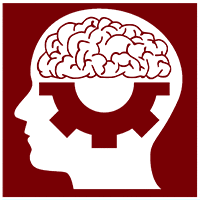
Instructor: Susan L. Epstein
Course Number: SCI 111
Course Level: Undergraduate
Prerequisites: None
Course Description:
This course is intended for first-year students and has no prerequisites. It has been approved by The City University of New York as a Scientific World course, which means that it is accepted to fulfill a science distribution requirement. It is taught as a small lecture course that meets for 75 minutes twice a week for 14 weeks. There is a midterm, a final, and 8 assignments that require extensive reading and writing.
The course is designed around three central questions:
- What is in your head?
- How does that make you behave?
- How could we build a machine like that?
As the course progresses, there is a strong emphasis on material produced by interdisciplinary collaboration and thoughtful experimental design. At Hunter, this course regularly invites several early-career (recent graduates, post-doctoral students, and Ph.D. students) guest lecturers with substantial expertise in a particular area. Each of them addresses one of the topics below from their own perspective. (There is also always a guest lecture on free will by Dr. Phil Zeigler that the students invariably praise.)
Given its breadth and target population, the course is designed with a spiral curriculum, that is, material is repeatedly introduced at deeper levels. Thus, it introduces some basic vocabulary and processes in lecture 1, extends those ideas in lecture 2, and lays the groundwork for a scientific approach in lecture 3. The next set of lectures goes into greater depth on cognitive neuroscience (lectures 4 and 5), cognitive psychology (lectures 6 and 7), and artificial intelligence (lectures 8 and 9). The remainder of the material focuses on three essential cognitive abilities: vision (lectures 10-15), navigation (lectures 16-18), and language (lectures 19-21). Each ability is viewed in turn from the perspective of how the brain, the mind, and a computer address it. Vision, about which the most is known, is addressed first generally and then focuses on the task of face recognition.

